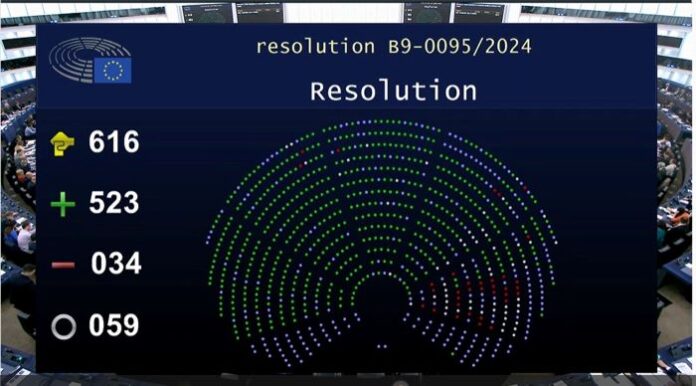Norway has passed a bill allowing deep-sea mining, making it the first country in the world to do so. This practice involves searching for minerals in the ocean’s depths and is essential for building green technology, such as batteries for electric vehicles. The bill permits mining exploration in parts of Norway’s sea, covering approximately 280,000 square metres of the country’s national waters – an area almost the size of Italy. However, despite the bill’s passing, the Norwegian government has stated that it will proceed cautiously and is unlikely to grant licenses for mineral extraction from the sea bed anytime soon. Many scientists and environmental experts have warned that the proposed plans could severely impact marine life and carbon stored in the ocean. They recommend more research to understand the potential consequences before deep-sea mining occurs.
Scientists are against mining of the Arctic seabed.
Nodules and metal crusts on the seafloor contain minerals like cobalt and zinc, which are essential for green technologies. Deep-sea mining could make the country a significant mineral producer while moving away from the oil and gas industry. However, over 800 marine scientists and policy experts from 44 countries warn of irreversible damage to biodiversity and ecosystems. They called for a pause on deep-sea mining plans. The International Union for Conservation of Nature is also concerned about light and noise pollution that could damage species’ habitats.
The European Parliament expressed its concern over Norway’s decision.
In a plenary resolution, MEPs respond to the Norwegian Parliament’s decision to open 281 200 km2 to potential deep-seabed mining. They call on the Commission and EU countries to work towards an international moratorium until the impact of this activity on the marine environment has been sufficiently understood and harm to marine ecosystems prevented. They demand that non-EU countries respect the precautionary principle and support the moratorium.
The targeted area is in the Norwegian extended continental shelf, affecting several countries’ fishing interests. From Jan Mayen island to Svalbard archipelago, the area includes Svalbard’s Fisheries Protection Zone, where 22 EU countries and 23 non-EU countries can fish.
Therefore, MEPs remind Norway of its obligations as a party to several treaties on managing fishing stocks and protecting Arctic waters against the adverse effects of human activities.
The resolution says that the Norwegian Parliament still has to take a final vote on extraction activities. They also highlight that the country’s Environment Agency needs more knowledge to proceed with mineral extraction.
The EU has invested more than 80 million EUR in research on the impacts of deep-sea mining on the marine environment and environmentally friendly technologies. However, knowledge of deep-sea ecosystem functioning and recoverability still needs to be improved.
According to the text, seven EU countries have already supported a moratorium, pause, or ban on seabed mining. In contrast, many others have supported an identical measure in the IUCN World Conservation Congress framework in September 2021. Finally, MEPs argue that big international companies – such as Volvo, BMW, Volkswagen, Samsung or Phillips – have committed to not sourcing or financing minerals from the deep seabed.
The resolution was approved by 523 votes in favour, 34 against, and 59 abstentions.

